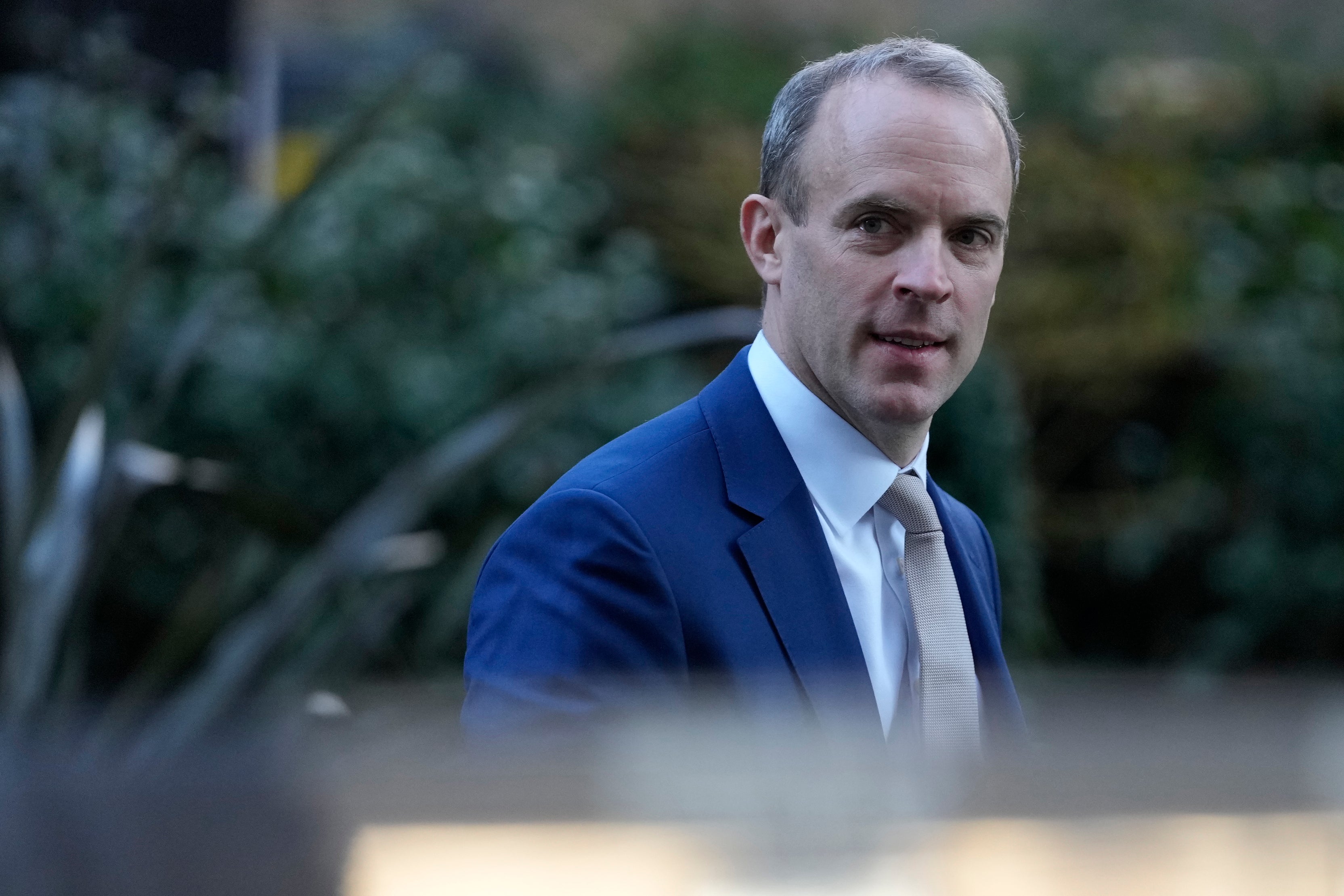I witnessed the Afghan evacuation scandal – Raab should have been sacked there and then
Junior staff with no experience of Afghanistan were left to make life-or-death decisions, writes Kim Sengupta


When in a disagreement with officials in the Foreign Office, Dominic Raab would sometimes roll his shoulders like a boxer about to start a bout in the ring, recounted one of the civil servants who had been in that situation.
Asked how he had responded, the official said: “I rolled my shoulders back. Raab looked a bit confused, but quietened down. That gave me a chance to explain what the team was putting forward. It was a policy matter, actually something not that controversial, and it was sorted out, but one needed to tackle this combative attitude.”
The official, engaged in work pertaining to the security role of the Foreign Office, was, unlike Raab, not a karate black belt, or an Oxford boxing blue. But he had been in difficult circumstances in Iraq, Afghanistan and Libya, and was not fazed by displays of petulant belligerence – though he accepted that some colleagues may have been upset by aspects of the foreign secretary’s behaviour.
I remember the anger of the same official, four months later, as he described the shambles over the Afghan evacuation in 2021. I was in Kabul when the Taliban took over, and witnessed the frustration of the diplomats and military with London, as they worked tirelessly to evacuate terrified people with the window for doing so rapidly closing.
Discussing this back in London, he wanted to stress: “You wouldn’t believe what went on... the disorganisation, the lack of cohesion. The foreign secretary wouldn’t come back from his holiday; he wouldn’t accept the gravity of the situation. That gave carte blanche to the PUS [permanent under secretary] not coming back either. There was basically a lack of leadership. You’ll see what comes out in the inquiry.”
The inquiry, undertaken by the Commons foreign affairs committee, indeed revealed details of how the evacuation had been appallingly mishandled. Raab did not return from his holiday in Crete, instead delegating tasks to junior ministers. Philip Barton, the permanent under secretary, also stayed away on holiday, although, unlike Raab, he expressed regret for doing so.
It emerged that, as the Taliban advanced rapidly across the country, the foreign secretary spoke to the British ambassador in Kabul just twice in August, the month when Kabul fell, and that he had failed to speak to any of the governments of Afghanistan’s neighbouring states, whose help would be needed in the event of an evacuation, during the previous eight months – except for one call to Pakistan’s foreign minister in April.
Some of the most damning testimony came from a whistleblower, former Foreign Office official Raphael Marshall. The ineptitude continued, he revealed, even after the foreign secretary returned from his holiday. Junior staff with no experience of Afghanistan were left to make life-or-death decisions.
In the final days, when Raab was asked to approve exceptional cases, he took “hours to engage”, and then returned the files, asking for them to be submitted in a different spreadsheet format.
Marshall told MPs that “there was very little time left for anyone to enter the airport ... The foreign secretary’s choice to cause a delay suggests he did not understand the desperate situation at Kabul airport.”
The foreign affairs committee’s report was devastating in its condemnation of Raab, and of the handling of the evacuation by the Foreign Office. Raab did not resign.
The prime minister at the time, Boris Johnson, who was accused of intervening on his wife Carrie’s behalf to prioritise flying out animals, from a sanctuary run by Pen Farthing, instead of people – an accusation Johnson denied – did not sack him, but moved him to the role of justice secretary. Raab remained in post as deputy prime minister.
Raab has now resigned – before he was sacked, according to reports – after an official inquiry into bullying allegations found he had acted in an “intimidating” manner towards officials in various departments.
This was always going to happen once the investigation was launched, reflected the Foreign Office official who had been in the shoulder-rolling contest with Raab: “It’s for the best; he couldn’t continue in [the Ministry of] Justice.”
But, he pointed out: “The rules, under the government we have, seem to be that you have to resign if you’re rude and upset civil servants, but not if you abandon our Afghan allies to the Taliban.”






Join our commenting forum
Join thought-provoking conversations, follow other Independent readers and see their replies
Comments